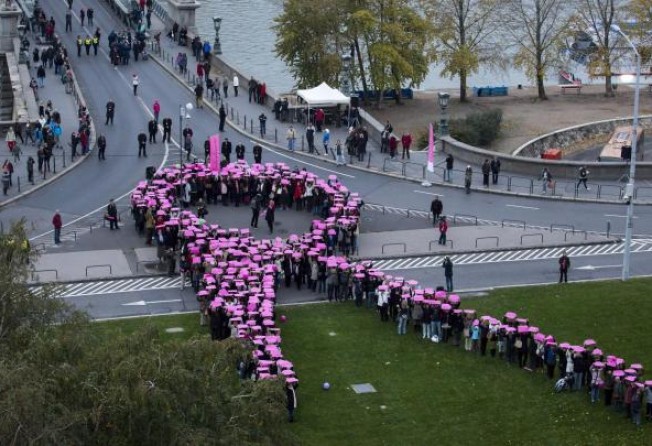
Fight against cancer is stalling, specialists told at world forum
Learning from the fight against Aids, world forum draws up a 10-point plan to provide treatment and prevention where it is most needed

Progress against cancer is stalling, with the latest targeted cancer drugs failing to live up to expectations and priced so high that treatment is becoming unaffordable even in rich countries, according to experts at a meeting of nearly 100 eminent cancer specialists from around the world.

Much needs to be done, they believe, to improve treatment, care and prevention both in the developed world and in poor countries, where cancer rates are rising even faster. They agreed to embark on an ambitious plan to get essential cancer care to those who are dying early in developing countries, in the same way that Aids doctors took on the fight to get HIV treatment into Africa.
The meeting of the World Oncology Forum, organised by the European School of Oncology, agreed that urgent action was needed on many fronts.
Only a few years ago, many cancer experts thought the arrival of targeted medicines, designed to attack the genetic make-up of the tumour, would make dramatic inroads into cancer deaths. But the excitement generated by targeted drugs, which interfere with specific molecules involved in tumour growth and suppression, has been short-lived.
Doctors reported apparently miraculous results from the use of the BRAF-inhibitor vemurafenib in advanced malignant melanoma, a usually fatal form of skin cancer, said Douglas Hanahan of the Swiss Institute for Experimental Cancer Research. Within two weeks, the tumours had melted away. "But six months later, [the cancer] is back with a vengeance," he said.
Other drugs working in a similar way - including erlotinib (Tarceva) for a form of lung cancer, bevacizumab (Avastin) for breast, colorectal and other cancers, and sunitinib (Sutent) for renal cell carcinoma and gastrointestinal sarcoma - have also not done so well, said Hanahan.
Resistance to the drugs builds up, sometimes very quickly. "All came on line with great expectations. The reality check is they are all working in the important first step, but we have a long way to go in terms of winning the war."
The future is probably using these drugs together or in combination with other, older types of drugs, but the price is likely to be prohibitive. A year's treatment with vemurafenib alone would cost £91,000 (HK$1.14 million).
Doctors at the meeting said pharmaceutical industry prices were unsustainable - and the pursuit of profits stopped companies taking part in trials of combinations of their drugs with those of their competitors. They were also said to be not interested in testing their drugs combined with older drugs out of patent.
Alexander Eggermont, general director of the Gustave Roussy Cancer Institute in France, said the "economic models of molecular medicine are very uncertain, because if you don't produce cures, you don't know if it is going to sell".
Decades ago, genuine breakthrough drugs were discovered. Epidemiologist Richard Peto pointed out that five years of tamoxifen reduces mortality in most breast cancers by a third and the benefits continue even after a woman stops taking it.
It now appears that taking it for 10 years is even more effective. Nobody knows why resistance does not develop.
But the meeting agreed that while changes are needed in research, regulation and funding to speed progress on new drugs for intractable cancers, a great deal could and must be done now to tackle cancer in less well-off countries where children and women, in particular, are dying of preventable and curable diseases.
"The divide is such that in Canada almost 90 per cent [of children with leukaemia] can hope to survive while in the poorest countries, 90 per cent are expected to die,"said Felicia Knaul, director of the Harvard University global equity initiative.
Between a third and a half of all cancers - 2.4 million to 3.7 million a year - are preventable, said Knaul, and 80 per cent of those are in lower- and middle-income countries. Preventing and treating them would offer potential productivity savings of more than US$130 billion a year - far more than the cost of treatment.